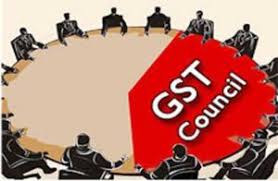 A ministerial panel headed by Bihar Deputy Chief Minister Sushil Modi on Sunday decided to recommend to the Goods and Services Tax (GST) Council to take the final call on the way reverse charge mechanism will be applicable.
A ministerial panel headed by Bihar Deputy Chief Minister Sushil Modi on Sunday decided to recommend to the Goods and Services Tax (GST) Council to take the final call on the way reverse charge mechanism will be applicable.
Concerns related to revenue prompted another ministerial panel, also headed by Modi, to defer GST discount to consumers making digital payments for about a year.
On May 4, the Council had discussed the proposal of giving a concession of two percent in the GST rate (where tax rate is three percent or more) on B2C supplies, for which payment is made through cheque or digital mode. In that case, the ceiling for the discount will be capped at Rs 100 per transaction.
While the Group of Ministers (GoM) is in favour on incentivising digital payments, PM Modi said it is better to wait for some time till revenue stabilises further.
The GoM, hence, recommended the GST Council to defer the incentives for now.
The GST Council will decide on businesses that will have the liability to pay tax on reverse charge. Towards this, the GoM has suggested deleting sub-section (4) of section 9 of the Central GST (CGST) Act, 2017.
The ministerial panels will submit their report to the GST Council that is expected meet on July 21 in New Delhi.
Since the implementation of GST in July last year, reverse charge mechanism – one of the key measures against tax evasion – has been deferred thrice and this time till September 30.
Earlier during the year, some states had insisted that the reverse charge mechanism should be re-introduced, as it will help tax authorities plug revenue leakages. Thereafter, a GoM headed by Modi was formed to decide on the exact shape and form of RCM if the government decides to implement it.
Reverse charge is a mechanism where the recipient of the good or service will have to pay GST, which is otherwise paid by the supplier. The charge is applicable on a registered dealer if he buys goods from a dealer not registered under GST. However, the receiver of the good is eligible for input tax credit, while the unregistered dealer is not.
Registered taxpayers (supplier) were not willing to take the burden of paying tax, while small or unregistered taxpayers were running out of business as these registered dealers were hesitant to buy goods from them. Keeping this in mind, GST Council in October, 2017 had temporarily suspended RCM, as it was increasing compliance burden on taxpayers.
Source: Moneycontrol
We have launched Single Platform on GST Compliances In India, assisting in 4 areas – 1) Compliances, 2) Litigations & Hearings, 3) Training 4) Consultancy. Click this link for any assistance.
 customersuccess@taxmantra.com
customersuccess@taxmantra.com Toll Free:
Toll Free:  Contact Us
Contact Us

